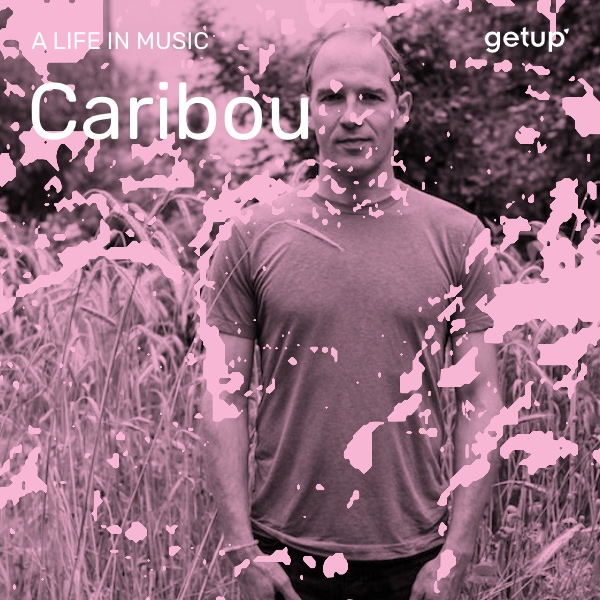The first time I saw Caribou live, after several other high-flying DJ sets, I could see exactly why I loved his music so much. By then the Canadian Dan Snaith had already started his shift towards electro music, a genre that doesn’t necessarily lend itself to the album format, given the (at times) repetitive nature of the music, the absence of singing, and a length which calls for coherence and a story, rather than a succession of fifteen dance hits.
His live sets are like riding a really exciting roller coaster, made up of intoxicating climbs and joyful descents – although I have to say I always hated roller coasters. But his coaster doesn’t make you sick. Quite the contrary. Surrounded by a drummer, a percussionist, a synth, and various other machines, his neutral yet moving voice echoes that of Arthur Russell, a cult figure on the New York disco scene. His live performance showcases a background as eclectic as his tastes, with a love for organic sounds, as well as a real ability to write songs, and all this from a guy who’s been influenced by krautrock, psychedelic rock, shoegazing and sunshine pop. Throughout, he’s maintained a love of repetitive rhythms, sensual refrains, an unrelentingly pressurised sound, and moments of pure beauty. At the same time, he’s also produced techno tracks and remixes under the pseudonym Daphni, less out of some sort of schizophrenia but rather the desire to try everything, as if his need for BPM couldn’t wait for Caribou to catch up.
An exploration of his universe has to start with his first albums, recorded under the name Manitoba before a lawsuit forced him to change it. Between 2001 and 2007, from the albums Start Breaking My Heart to Andorra, Snaith was found in the electronica category, a discreet yet playful genre where rock instruments blend into an electro landscape. Then, on Swim in 2010, he took a different turn, marked by the opening track “Odessa”, a track that shows clubbers that Caribou is one of their own. Always clever, Snaith has since taken his time, only releasing two albums of late, in 2014 and 2020, but each time taking giant leaps forward. Despite the rise of the number BPM we still find moments of intimacy and a human scale to his productions. We can put this down to the songwriting talents that have remained no matter what he’s working on in his studio at the time. The first time I saw Caribou definitely wasn’t the last. I can’t wait for next time.




.jpg)



